#citizenship system in indian constitution
Explore tagged Tumblr posts
Text
Under the 14th Amendment: “All persons born or naturalized in the United States, and subject to the jurisdiction thereof, are citizens of the United States and of the State wherein they reside.” This clause from 1868 has far surpassed its original intent. It has been abused as a method for citizenship by illegal migrants who often intentionally travel to the US to give birth, but not in the way the media portrays it. Recent data suggests at least 400,000 “anchor babies,” as they are called, were born in the US in 2024 alone.
The Common Law Doctrine of Jus Soli under English common law protected “right of the soil,” which deemed anyone born on a country’s soil to be a citizen. The US Constitution never clearly defined citizenship until the Naturalization Act of 1790, which granted citizenship to “free white persons” born on US soil. The advent of the Civil War left dire uncertainty for slaves who had no homeland to return to after the war came to an end and slavery was abolished. The 1844 case Lynch v Clarke in New York reaffirmed that anyone born to non-citizen parents would be considered an American. The Reconstruction Amendments remained vague, and Dred Scott was expanded in 1868 to include:
“All persons born or naturalized in the United States, and subject to the jurisdiction thereof, are citizens of the United States and of the State wherein they reside.”
The law remained open to interpretation. Native Americans, for example, were not seen as Americans since they did not pledge their allegiance to the federal government. It was not until the Indian Citizenship Act of 1924 that Native Americans were considered full citizens.
America’s complicated past with citizenship has led to today’s debacle. Nowhere along the way did the Supreme Court or any other entity grant citizenship to parents of children born in the US. However, the system often looks the other way to prevent separating families. American-born children may sponsor their parents for a green card when they turn 21. Then, the parents must wait five years before applying for naturalization. Parents often must leave the US for a decade before applying for citizenship. Yet, in recent years, we have seen people completely bypass the system by claiming asylum. Under Biden-Harris, the borders were simply wide open.
Hence why, the media is attacking incoming border tzar Tom Homan for insisting that families can leave the US together if they want to prevent separation. The parents are here illegally — plain and simple.
20 notes
·
View notes
Text
The only real firewall against the Trump regime
In the pending Trump regime, federal judges (most of them appointed by Democratic presidents) will form the most important firewall.
ROBERT REICH
JAN 2

Friends,
As a practical matter, where will we find a firewall against the excesses of the Trump regime? The federal courts.
You might say it doesn’t matter because the Supreme Court will rubber-stamp whatever Trump and his cronies want to do.
Not so. The Supreme Court didn’t support all of Trump’s moves in his first administration (remember Trump’s Muslim ban?).
More importantly, fewer than 1 percent of federal cases ever reach the Supreme Court. Given the amount of federal litigation likely to be created by the upcoming Trump administration, the Supreme Court probably won’t be able to deal with even 1 percent.
Most disputes will be decided instead by 1,457 federal judges across 209 courts in the federal court system.
Most of these federal judges were appointed by Democratic presidents.
Of the 680 federal district court judges, 370 were appointed by Democrats compared to 267 by Republicans.
Of the 179 federal courts of appeals judges, 89 were appointed by Republican presidents and 89 by Democratic presidents. Judges appointed by Democratic presidents hold the majority of seats on seven of the 13 regional courts of appeal.
(Biden nominated and the Senate confirmed 235 federal judges — a quarter of all federal judges, and one more than Trump.)
***
Examples of federal litigation we can expect:
1. Trump has promised to withhold, by executive action, birthright citizenship from people born in the United States to parents who are undocumented immigrants.
Yet the 14th Amendment guarantees citizenship to “all persons born or naturalized in the United States, and subject to the jurisdiction thereof.” The restriction, at the time of the amendment’s adoption in 1868, was widely understood to exclude foreign diplomats and native tribes. American Indians later started receiving birthright citizenship under a law passed in 1924.
2. Trump says he’ll refuse to spend money that Congress has authorized.
“When I return to the White House, I will do everything I can to challenge the Impoundment Control Act in court,” Trump has said. “With impoundment, we can simply choke off the money.”
Wrong. Congress restricted impoundments in 1974 in response to Nixon’s efforts to unilaterally alter domestic programs. Trump’s OMB is expected to argue that the 1974 Impoundment Control Act is unconstitutional. But the Constitution assigns Congress the “power of the purse” to control taxation and spending.
3. Trump wants to revive a policy from late in his first term making it easier to fire tens of thousands of civil servants despite Biden’s moves to bolster their protections.
When Trump does this, unions representing federal workers will appeal to the federal courts.
4. Trump will seek to raise tariffs across the board, arguably a move that requires congressional action.
To impose 25 percent tariffs on all imports from Mexico and Canada, as Trump says he wants to do, would require his reliance on an emergency powers law that’s the basis for U.S. financial sanctions, but not the basis for tariffs. Such executive action would almost certainly be challenged by affected businesses.
5. Trump will try to erode Social Security, Medicare, and Medicaid without congressional approval.
Vivek Ramaswamy, the co-chair (with Elon Musk) of Trump’s so-called “Department” of Government Efficiency, asserts that he and Musk could cut Social Security, Medicare, and Medicaid without Congress’ approval. “The executive branch has no obligation to send out a payment if it is wasteful,” he said.
I doubt they’ll try to take on these popular programs head-on. More likely, they’ll try to alter eligibility or, as in the case of Medicaid, impose work requirements and make block-grants to the states.
Where will this issue be decided? Again, in the federal courts.
6. Trump will seek to undo thousands of regulations through an executive order instructing agencies not to enforce them.
Musk and Ramaswamy have already boasted that this is what Trump will do. The Administrative Procedure Act requires, however, an open process if agencies want to adopt or rescind regulations.
Musk and Ramaswamy’s moves (via Trump) will be instantly appealed to the federal courts.
7. DOGE’s secrecy itself will be challenged.
The Federal Advisory Committee Act of 1972 requires outside groups advising the executive branch to hold open meetings and include a range of perspectives. (The federal appeals court in Washington upheld the requirements during the first Trump administration, when a veterans group sued the Department of Veterans Affairs for relying on a trio of advisersbased out of Trump’s Mar-a-Lago Club.)
Where will this be decided? The federal courts could order disclosures or even bar agencies from using recommendations from advisers who broke the rules.
***
Trump’s incipient administration is already laying plans for this tsunami of federal litigation against the regime. “Those who seek to delay or stall [Trump’s] agenda by filing litigation against the Trump administration will be subverting the will of the tens of millions of Americans who just reelected President Trump,” said Trump spokeswoman Karoline Leavitt.
Rubbish. In light of Republican control over the White House and both chambers of Congress, litigation in the federal courts may be the only way to protect the rights of the tens of millions of Americans who didn’t elect Trump and even of many who did.
Given that most of this litigation will be decided not by the Supreme Court but by federal judges appointed by Democratic presidents, there’s a fair chance that many of Trump’s initiatives will be found to be illegal.
15 notes
·
View notes
Text

now who’s being ahistorical here?
take the Convention debates on the Constitution’s citizenship requirements, in 2 Farrand 216 (Aug. 8, 1787), and id. 235 (Aug. 9, 1787):







even if someone was born under a British sovereign, he couldn't be a “native” or “natural-born citizen” of the United States unless he was born there
note the particular sensitivity of James Wilson. here’s someone born in Scotland, under a British sovereign, and perfectly “white,” but acutely aware that he is an immigrant:
Mr. Wilson said he rose with feelings which were perhaps peculiar; mentioning the circumstance of his not being a native, and the possibility, if the ideas of some gentlemen should be pursued, of his being incapacitated from holding a place under the very Constitution which he had shared in the trust of making. He remarked the illiberal complexion which the motion would give to the System, & the effect which a good system would have in inviting meritorious foreigners among us, and the discouragement & mortification they must feel from the degrading discrimination, now proposed. He had himself experienced this mortification. On his removal into Maryland, he found himself, from defect of residence, under certain legal incapacities, which never ceased to produce chagrin, though he assuredly did not desire & would not have accepted the offices to which they related. To be appointed to a place may be matter of indifference. To be incapable of being appointed, is a circumstance grating, and mortifying.
And note Gouverneur Morris responding in an equally modern way, with weird, racialized panic about cuckoldry:
There was a moderation in all things. It is said that some tribes of Indians, carried their hospitality so far as to offer to strangers their wives and daughters. Was this a proper model for us ? He would admit them to his house, he would invite them to his table, would provide for them comfortable lodgings; but would not carry the complaisance so far as, to bed them with his wife.
the past may be a foreign country but they don’t do things all that differently there
9 notes
·
View notes
Text
Who is the worst founding father? Round 3: George Washington vs John Adams

George Washington (February 22, 1732 – December 14, 1799) was an American military officer, statesman, and Founding Father who served as the first president of the United States from 1789 to 1797. Appointed by the Continental Congress as commander of the Continental Army, Washington led Patriot forces to victory in the American Revolutionary War and served as president of the Constitutional Convention of 1787. Washington has been called the “Father of his Country” for his manifold leadership in the nation’s founding.
Washington was a slave owner who had a complicated relationship with slavery. During his lifetime, he owned a cumulative total of over 577 slaves, who were forced to work on his farms and wherever he lived, including the President’s House in Philadelphia. Yet, as president, he also signed laws passed by Congress that both protected and curtailed slavery. His will stated that one of his slaves, William Lee, should be freed upon his death and that the other 123 slaves should be freed on his wife’s death, though she freed them earlier during her lifetime.
Some accounts report that Washington opposed flogging but at times sanctioned its use, generally as a last resort, on both men and women slaves. Washington used both reward and punishment to encourage discipline and productivity in his slaves. He tried appealing to an individual’s sense of pride, gave better blankets and clothing to the “most deserving”, and motivated his slaves with cash rewards. He believed “watchfulness and admonition” to be often better deterrents against transgressions but would punish those who “will not do their duty by fair means”. Punishment ranged in severity from demotion back to fieldwork, through whipping and beatings, to permanent separation from friends and family by sale.
Washington endeavored to assimilate Native Americans into the Anglo-American culture. He also waged military campaigns against Native American nations during the Revolutionary War and the Northwest Indian War.
His closest advisors formed two factions, portending the First Party System. Secretary of the Treasury Alexander Hamilton formed the Federalist Party to promote national credit and a financially powerful nation. Secretary of State Thomas Jefferson opposed Hamilton’s agenda and founded the Jeffersonian Republicans. Washington favored Hamilton’s agenda, however, and it ultimately went into effect—resulting in bitter controversy.
In response to antislavery petitions that were presented in 1790, slaveholders objected and threatened to “blow the trumpet of civil war”. Washington and Congress responded with a series of racist measures: naturalized citizenship was denied to black immigrants; blacks were barred from serving in state militias; the Southwest Territory that would soon become the state of Tennessee was permitted to maintain slavery; and two more slave states were admitted. Washington signed into law the Fugitive Slave Act, which overrode state laws and courts, allowing agents to cross state lines to capture and return escaped slaves. Many free blacks in the north decried the law believing it would allow bounty hunting and the kidnappings of blacks.
John Adams (October 30, 1735 – July 4, 1826) was an American statesman, attorney, diplomat, writer, and Founding Father who served as the second president of the United States from 1797 to 1801. Before his presidency, he was a leader of the American Revolution that achieved independence from Great Britain. During the latter part of the war and in the early years of the nation, he served as a diplomat in Europe. He was the first person to hold the office of vice president of the United States, serving from 1789 to 1797. Adams was a dedicated diarist and regularly corresponded with many important contemporaries, including his wife and adviser Abigail Adams as well as his friend and rival Thomas Jefferson.
During his single term, Adams encountered fierce criticism from the Jeffersonian Republicans and from some in his own Federalist Party, led by his rival Alexander Hamilton. Adams signed the controversial Alien and Sedition Acts, and built up the Army and Navy in the undeclared naval war (called the “Quasi-War”) with France.
In an attempt to quell [public] outcry, the Federalists introduced, and the Congress passed, a series of laws collectively referred to as the Alien and Sedition Acts, which were signed by Adams in June 1798. All came within a period of two weeks, in what Jefferson called an “unguarded passion.” The Alien Friends Act, Alien Enemies Act, and Naturalization Acts targeted immigrants, specifically French, by giving the president greater deportation authority and increasing citizenship requirements. The Sedition Act made it a crime to publish “false, scandalous, and malicious writing” against the government or its officials. Adams had not promoted any of these acts, but was urged to sign them by his wife and cabinet. He eventually agreed and signed the bills into law.
In his bid in 1800 for reelection to the presidency, opposition from Federalists and accusations of despotism from Jeffersonians led to Adams losing to his vice president and former friend Jefferson, and he retired to Massachusetts.
#founding father bracket#worst founding father#founding fathers#george washington#john adams#amrev#brackets#polls#what a matchup
24 notes
·
View notes
Quote
A democracy doesn't just mean having regular elections. You cannot be a democracy when 200 million people who constitute a religious minority are expected to live without rights. When you can lynch them, kill them, incarcerate them, economically and socially boycott them, bulldoze their homes with complete immunity and threaten to strip them of citizenship. When the murderers and lynchers can aspire to move swiftly up the political ladder. The systematic indoctrination of people on the scale on which it has taken place over decades is hard to reverse. Every institution that is supposed to make up the system of checks and balances has been hollowed out, repurposed and deployed against people as a weapon of Hindu nationalism. In terms of political opposition, there are political parties that have successfully opposed the BJP at the state level in Tamil Nadu, Bengal, Kerala, Maharashtra, Punjab, but opposition is virtually non-existent at the national level.
Arundhati Roy, ‘The damage to Indian democracy is not reversible', CNN
#democracy#India#BJP#Hindu nationalism#Tamil Nadu#West Bengal#Kerala#Maharashtra#Punjab#Arundhati Roy#CNN
3 notes
·
View notes
Text
[ad_1] On January 20, US President Donald Trump signed an executive order to begin the process of ending birthright citizenship, marking his return to the White House. This order, part of a broader series of executive actions, seeks to deny automatic US citizenship to children born in the country to parents without legal immigration status. Under the new directive, children born in the US will not be granted citizenship if their father is not a US citizen or lawful permanent resident, and their mother is either in the country unlawfully or on a temporary visa, such as a student, work, or tourist visa. The policy, which will take effect in 30 days, specifically targets children born to parents who are in the US unlawfully or temporarily. Immigration advocates quickly filed a lawsuit, arguing that the order reverses over a century of established US legal precedent. What is the Birthright Citizenship Executive Order? This executive order challenges the interpretation of the 14th Amendment to the US Constitution, ratified in 1868 to clarify the citizenship status of formerly enslaved people. The amendment has historically been understood to grant citizenship to anyone born on US soil. The 14th Amendment states: “All persons born or naturalized in the United States, and subject to the jurisdiction thereof, are citizens of the United States.” Critics of birthright citizenship argue that it should not apply to the children of illegal immigrants or those engaging in “birth tourism,” where individuals travel to the US late in their pregnancy to ensure their child is born a citizen. The 1898 Supreme Court ruling upheld this interpretation, deciding that a man born to Chinese immigrants with permanent US residency could not be denied citizenship. Trump’s order hinges on the clause “subject to the jurisdiction thereof,” questioning who qualifies for citizenship. Who Will Not Be Eligible for US Citizenship? Under the new order, the following children born in the US will not automatically be granted citizenship: If the mother was unlawfully in the US and the father was neither a US citizen nor a lawful permanent resident at the time of birth, or If the mother’s presence in the US was lawful but temporary (such as on a work, student, or tourist visa) and the father was not a US citizen or lawful permanent resident at the time of birth. Who Will Keep US Citizenship? The executive order specifies that for a child to gain citizenship, at least one parent must be a US citizen, a lawful permanent resident (green card holder), or a member of the US military. Additionally, children born before the order takes effect will retain their US citizenship, as the policy is not retroactive. Impact on Indian Immigrants During his campaign, Trump criticized the current system of birthright citizenship, claiming it was being exploited, especially by nationals from countries with high immigration to the US, such as India and China. This executive order revokes automatic citizenship for children born to parents on temporary work visas (like H-1B) or those awaiting a green card. As of 2024, the US had over 5.4 million Indian Americans, making up 1.47% of the population. Of these, about two-thirds are immigrants, and 34% were born in the US, according to official data. Increased Green Card Delays Indian immigrants, who already face lengthy green card backlogs, could experience even longer delays if their children no longer qualify for automatic citizenship at birth. [ad_2] Source link
0 notes
Text
[ad_1] On January 20, US President Donald Trump signed an executive order to begin the process of ending birthright citizenship, marking his return to the White House. This order, part of a broader series of executive actions, seeks to deny automatic US citizenship to children born in the country to parents without legal immigration status. Under the new directive, children born in the US will not be granted citizenship if their father is not a US citizen or lawful permanent resident, and their mother is either in the country unlawfully or on a temporary visa, such as a student, work, or tourist visa. The policy, which will take effect in 30 days, specifically targets children born to parents who are in the US unlawfully or temporarily. Immigration advocates quickly filed a lawsuit, arguing that the order reverses over a century of established US legal precedent. What is the Birthright Citizenship Executive Order? This executive order challenges the interpretation of the 14th Amendment to the US Constitution, ratified in 1868 to clarify the citizenship status of formerly enslaved people. The amendment has historically been understood to grant citizenship to anyone born on US soil. The 14th Amendment states: “All persons born or naturalized in the United States, and subject to the jurisdiction thereof, are citizens of the United States.” Critics of birthright citizenship argue that it should not apply to the children of illegal immigrants or those engaging in “birth tourism,” where individuals travel to the US late in their pregnancy to ensure their child is born a citizen. The 1898 Supreme Court ruling upheld this interpretation, deciding that a man born to Chinese immigrants with permanent US residency could not be denied citizenship. Trump’s order hinges on the clause “subject to the jurisdiction thereof,” questioning who qualifies for citizenship. Who Will Not Be Eligible for US Citizenship? Under the new order, the following children born in the US will not automatically be granted citizenship: If the mother was unlawfully in the US and the father was neither a US citizen nor a lawful permanent resident at the time of birth, or If the mother’s presence in the US was lawful but temporary (such as on a work, student, or tourist visa) and the father was not a US citizen or lawful permanent resident at the time of birth. Who Will Keep US Citizenship? The executive order specifies that for a child to gain citizenship, at least one parent must be a US citizen, a lawful permanent resident (green card holder), or a member of the US military. Additionally, children born before the order takes effect will retain their US citizenship, as the policy is not retroactive. Impact on Indian Immigrants During his campaign, Trump criticized the current system of birthright citizenship, claiming it was being exploited, especially by nationals from countries with high immigration to the US, such as India and China. This executive order revokes automatic citizenship for children born to parents on temporary work visas (like H-1B) or those awaiting a green card. As of 2024, the US had over 5.4 million Indian Americans, making up 1.47% of the population. Of these, about two-thirds are immigrants, and 34% were born in the US, according to official data. Increased Green Card Delays Indian immigrants, who already face lengthy green card backlogs, could experience even longer delays if their children no longer qualify for automatic citizenship at birth. [ad_2] Source link
0 notes
Text
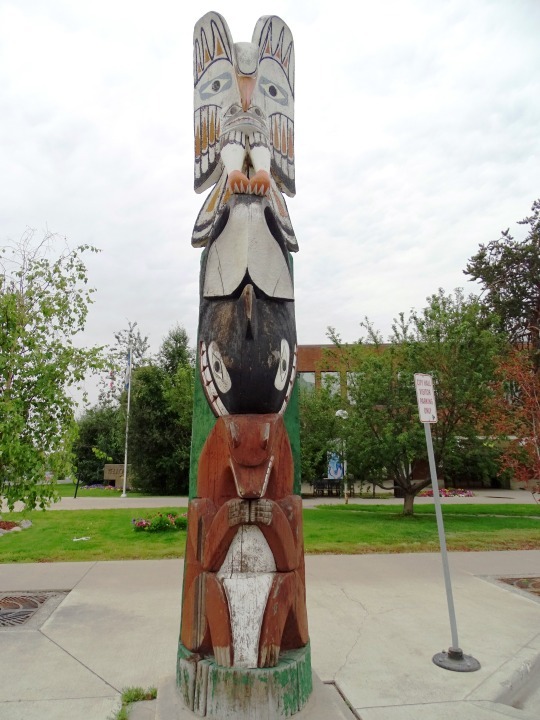
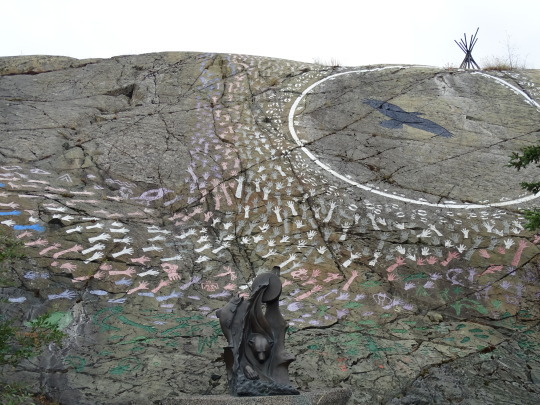
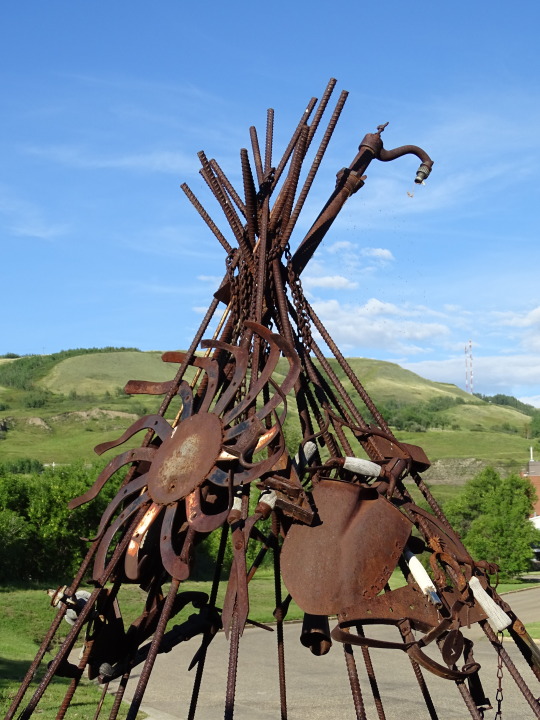
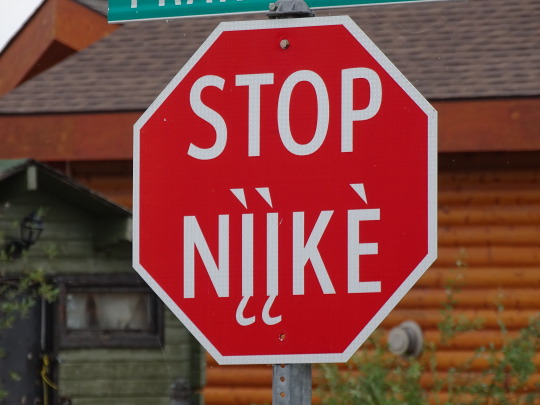


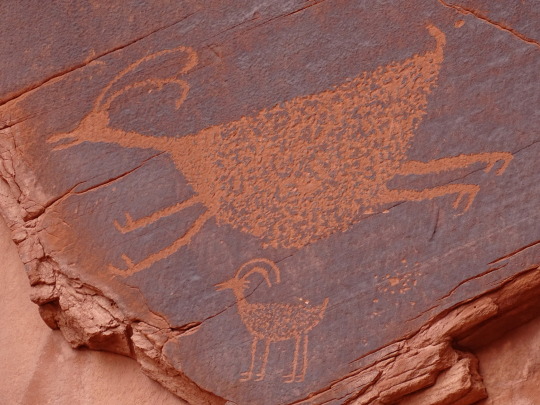
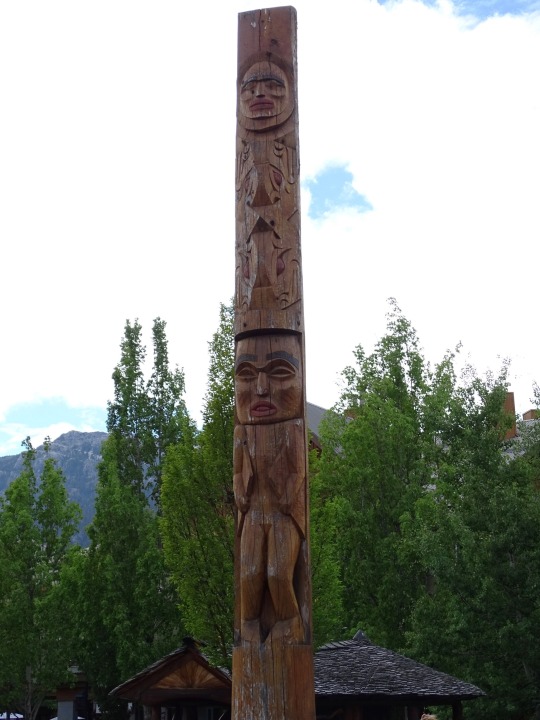

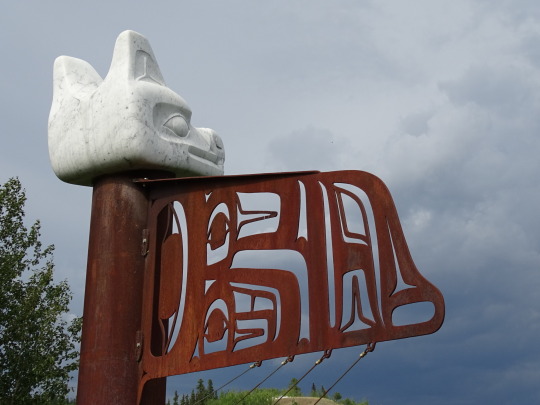
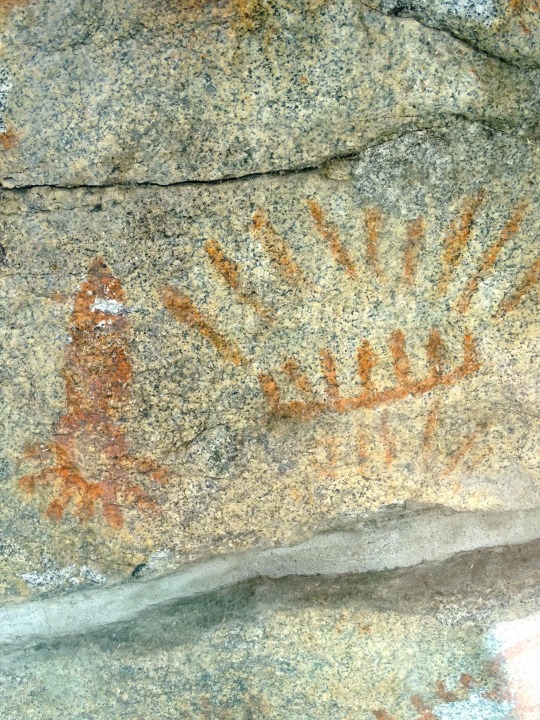
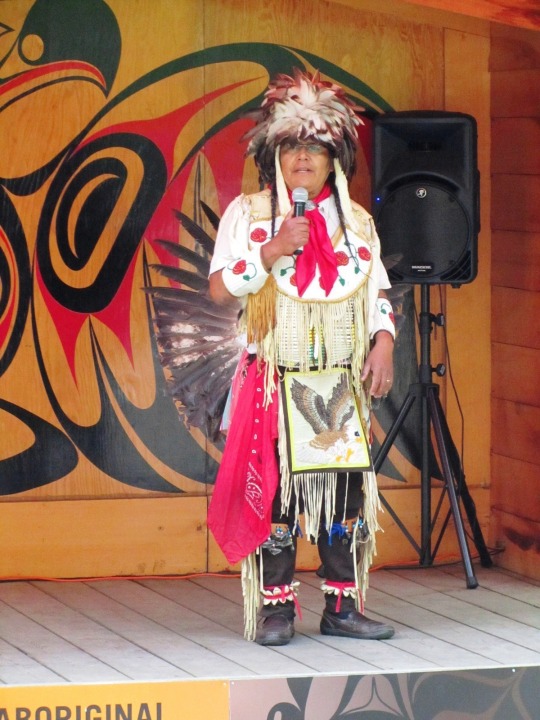
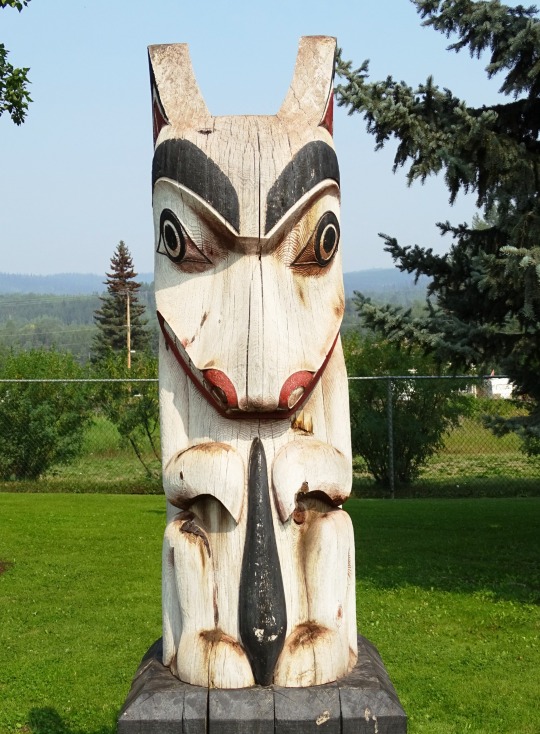
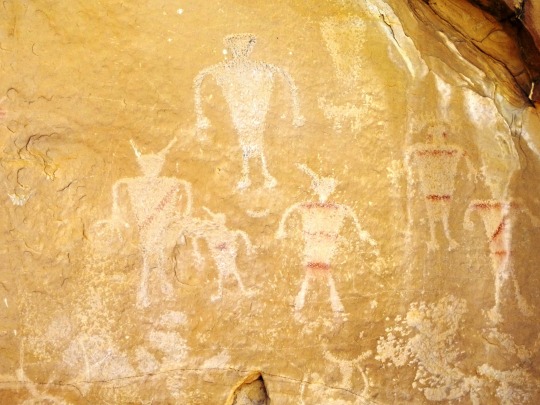
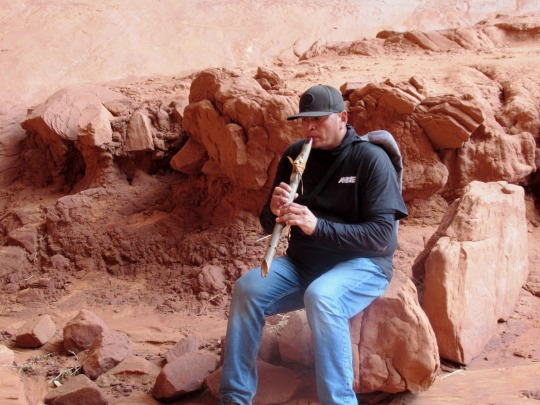
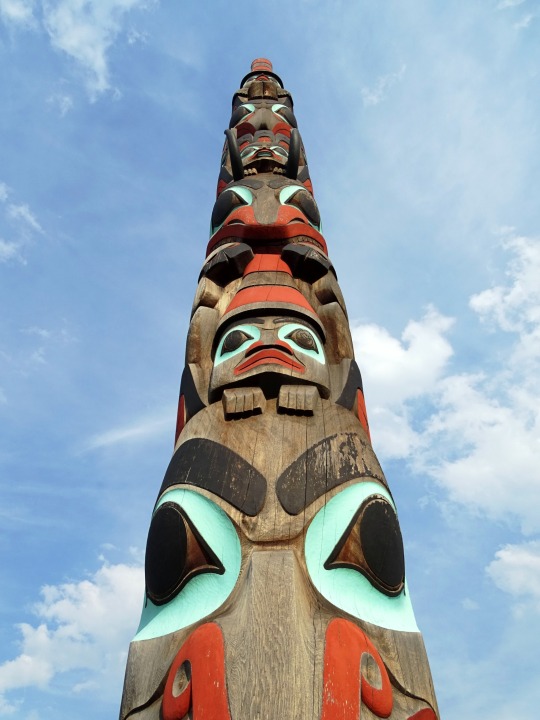
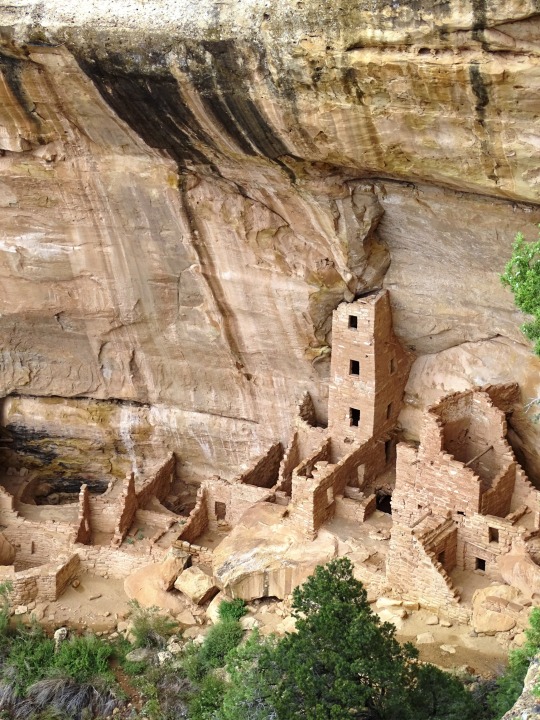

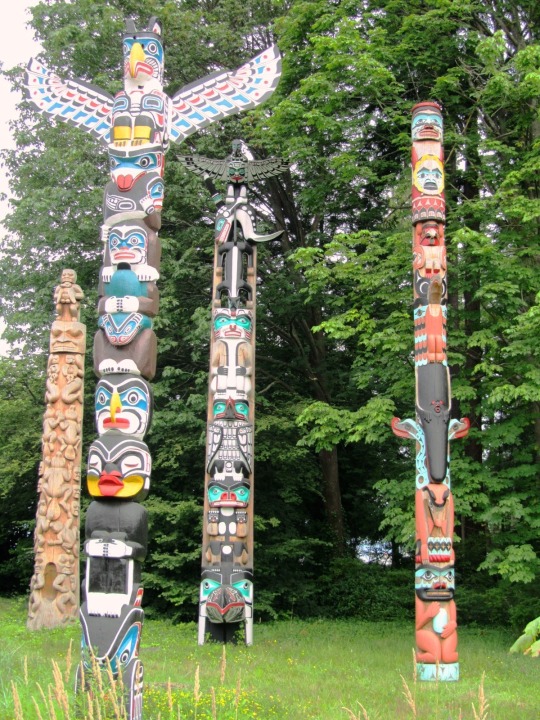
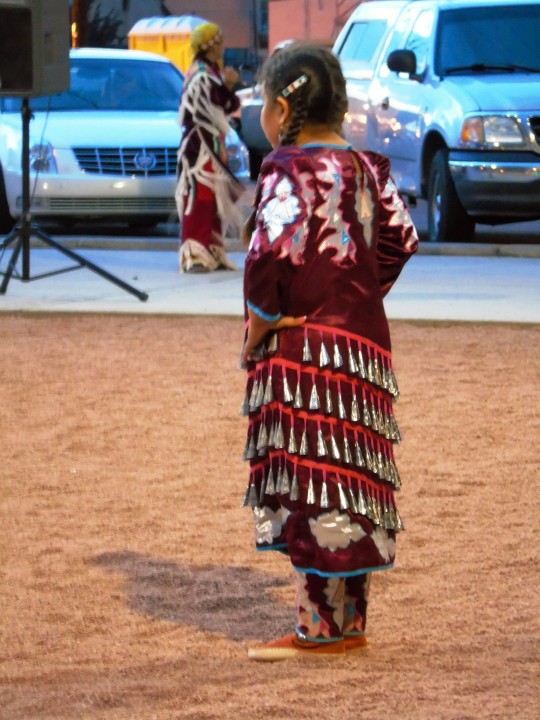
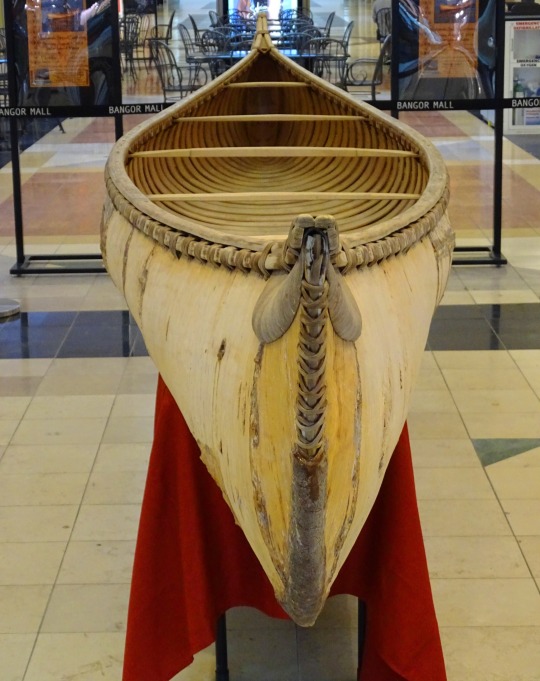
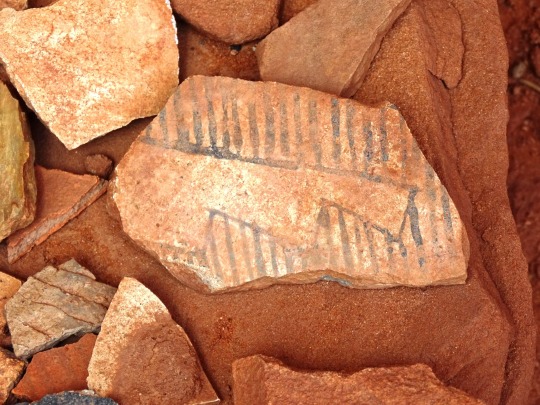
Native American Heritage Day
National Native American Heritage Day is observed on November 29, a day after Thanksgiving. American Indians are accorded special honor on this day, and their rich cultures, accomplishments, contributions, and heritage are celebrated. The history of America begins with Native Americans, and the bald eagle on the U.S. shield is an Iroquois symbol. On this day, we can enjoy displays of their cultural fashion and unique recipes and speak out against the grave injustices they have experienced.
History of Native American Heritage Day
Dr. Arthur C. Parker of the Seneca nation first protested for National Native American Heritage Day between 1912 and 1915. At first, he was fighting for an “American Indian Day” to be recognized within the Boy Scouts of America. In 1990, President George H. W. Bush signed into law the legislation introduced by Congressman Joe Baca, to designate the day after Thanksgiving as American Indian Heritage Day. The law was established on November 28 as a day to pay respects to the Native Americans for their numerous contributions to the United States. The American Indian Heritage Day was supported by the National Indian Gaming Association (NIGA) and 184 federally recognized tribes.
The Native American Heritage Day encourages Americans of all backgrounds to appreciate the indigenous cultures appropriately, with ceremonies and activities. Schools are also encouraged to enhance their students’ awareness of Native Americans by providing classroom activities focused on their history, contributions, and achievements.
The United States House of Representatives initially passed the Native American Heritage Day Act of 2009, with technical adjustments made by a collective consent in the United States Senate. The House of Representatives unanimously voted to pass the legislation again, including the Senate’s adjustments. The legislation was then signed into public law by President Barack Obama on October 30, 2009.
Native American Heritage Day and Month is a huge platform for Indigenous people to educate society about their communities. On this day, more than ever, they lead the discourse on culture, celebrate their heritage by donning traditional footwear (“rocking the moccasin”), and shed some light on the diverse tribal communities.
Native American Heritage Day timeline
12,000 B.C. The Native American Origin
Archaeologists believe Native Americans might have crossed into America from Asia at about 12,000 B.C.
1912 American Indian Day
Dr. Arthur C. Parker of the Seneca nation begins his fight for the Boy Scouts of America to recognize an “American Indian Day.”
1924 Native American Citizenship
After Congress enacts the Indian Citizenship Act, Native Americans are finally granted citizenship in their indigenous country.
1976 Native American Awareness Week
President Gerald R. Ford declares the first national, week-long observance for American Indians.
1990 National American Indian Heritage Day
President George H. W. Bush signs a resolution establishing the national holiday.
2009 National Native American Heritage Month
President Barack Obama declares the month of November as National Native American Heritage Month.
2018 Elected Native American Women
Sharice Davids and Deb Haaland are the first Native American women elected to Congress.
2019 Native American Census
The population of Indigenous People in the United States is 6.9 million, 2.09% of the country’s population.
Native American Heritage Day FAQs
What is the more appropriate term to use, American Indian or Native American?
Both terms are appropriate.
Do American Indians pay taxes?
Yes, they do. Both tribes and individual American Indians pay taxes, except those who work on a reservation.
How are tribes organized?
Tribes have innate rights to govern under their own systems of government. Tribal governments have various structures, and several of them have adopted constitutions, while others retain traditional methods of rulership. The governor of a tribe is commonly called the tribal chairperson, chief, governor, or president.
How to Observe Native American Heritage Day
Know the facts
Be socially active
Cook like a true Native American
Watch documentaries or read books that properly represent Native American history and culture. Take a tour of a Native American museum or heritage center near you.
Participate on social media or in online events observing Native American Heritage Day. TikTok’s #NativeFamily is a famous Native American Heritage community.
Choose a Native American meal to make. Try Three Sisters Soup, Pemmican, or simple Buffalo Stew. Native American meals are famously delightful, so try out some of their decadent recipes.
5 Facts About Native Americans
Their median age is 31
Few Native Americans hold a professional degree
They own over 24,000 businesses
There are hundreds of Indian tribes
The sequoia tree has a namesake
Native Americans consider the age of 31 as middle age.
8% of Native Americans over 25 have a graduate or professional degree.
American Indians and Alaska Natives own about 24,503 businesses in the U.S.
As of 2020, the number of federally recognized Indian tribes equals 574.
The giant redwood tree is named after the Cherokee leader Sequoyah, who helped develop the Cherokee alphabet.
Why Native American Heritage Day is Important
To accord rightful respect
For appropriate involvement in their culture
We learn and educate others
It is a day to honor and recognize the indigenous people’s contributions to the United States. An official holiday enlightens people on how to do this right.
We take part in the rich and diverse art, culture, and tradition of the Native people. This particular day allows us to bask in the beauty and uniqueness of their heritage, experiencing its multifaceted nature.
We learn and are inspired by how tribal citizens have synergized to conquer these challenges, and we hear these stories from the Natives themselves. It is the perfect chance to educate the public, to raise awareness about the unique challenges Native people have faced, past and present.
Sourcec
#Peace River#Yellwoknife#Olympic Lightning Figure by Ray Natraoro#Building on the Past Looking to the Future by Ken Anderson#Labyrinth Park#Two Brothers Totem Pole by Jaalen and Gwaai Edenshaw#pictograph#Inukshuk by Alvin Kanak#Dinosaur National Monument#USA#original photography#Mesa Verde National Park#travel#Green Chili Stew#Monument Valley Navajo Tribal Park#vacation#Pottery fragment#Native American Heritage Day#29 November 2024#day after Thanksgiving#NationalNativeAmericanHeritageDay#Wabanki Canoe#tourist attraction#landmark#Washington#Vancouver
0 notes
Text
Who is the worst founding father? Round 2: George Washington vs Tench Tilghman

George Washington (February 22, 1732 – December 14, 1799) was an American military officer, statesman, and Founding Father who served as the first president of the United States from 1789 to 1797. Appointed by the Continental Congress as commander of the Continental Army, Washington led Patriot forces to victory in the American Revolutionary War and served as president of the Constitutional Convention of 1787. Washington has been called the "Father of his Country" for his manifold leadership in the nation's founding.
Washington was a slave owner who had a complicated relationship with slavery. During his lifetime, he owned a cumulative total of over 577 slaves, who were forced to work on his farms and wherever he lived, including the President's House in Philadelphia. Yet, as president, he also signed laws passed by Congress that both protected and curtailed slavery. His will stated that one of his slaves, William Lee, should be freed upon his death and that the other 123 slaves should be freed on his wife's death, though she freed them earlier during her lifetime.
Some accounts report that Washington opposed flogging but at times sanctioned its use, generally as a last resort, on both men and women slaves. Washington used both reward and punishment to encourage discipline and productivity in his slaves. He tried appealing to an individual's sense of pride, gave better blankets and clothing to the "most deserving", and motivated his slaves with cash rewards. He believed "watchfulness and admonition" to be often better deterrents against transgressions but would punish those who "will not do their duty by fair means". Punishment ranged in severity from demotion back to fieldwork, through whipping and beatings, to permanent separation from friends and family by sale.
Washington endeavored to assimilate Native Americans into the Anglo-American culture. He also waged military campaigns against Native American nations during the Revolutionary War and the Northwest Indian War.
His closest advisors formed two factions, portending the First Party System. Secretary of the Treasury Alexander Hamilton formed the Federalist Party to promote national credit and a financially powerful nation. Secretary of State Thomas Jefferson opposed Hamilton's agenda and founded the Jeffersonian Republicans. Washington favored Hamilton's agenda, however, and it ultimately went into effect—resulting in bitter controversy.
In response to antislavery petitions that were presented in 1790, slaveholders objected and threatened to "blow the trumpet of civil war". Washington and Congress responded with a series of racist measures: naturalized citizenship was denied to black immigrants; blacks were barred from serving in state militias; the Southwest Territory that would soon become the state of Tennessee was permitted to maintain slavery; and two more slave states were admitted. Washington signed into law the Fugitive Slave Act, which overrode state laws and courts, allowing agents to cross state lines to capture and return escaped slaves. Many free blacks in the north decried the law believing it would allow bounty hunting and the kidnappings of blacks.
Tench Tilghman (December 25, 1744 – April 18, 1786) was an officer in the Continental Army during the American Revolutionary War. He served as an aide-de-camp to General George Washington, achieving the rank of lieutenant colonel.
How Tilghman came to join Washington's staff are unknown, but the Washington family and Tilghman family had familial connections.
On June 9, 1783, in St. Michael's Parish, Tilghman married Anna Maria Tilghman, his first cousin and daughter of Matthew Tilghman.
#founding father bracket#worst founding father#founding fathers#amrev#brackets#polls#george washington#tench tilghman
8 notes
·
View notes
Text
Who is the worst founding father? Round 4: George Washington vs James Monroe

George Washington (February 22, 1732 – December 14, 1799) was an American military officer, statesman, and Founding Father who served as the first president of the United States from 1789 to 1797. Appointed by the Continental Congress, Washington led Patriot forces to victory in the American Revolutionary War and served as president of the Constitutional Convention of 1787. Washington has been called the “Father of his Country” for his manifold leadership in the nation’s founding.
Washington was a slave owner who owned a cumulative total of over 577 slaves during his lifetime who were forced to work on his farms and wherever he lived, including the President’s House in Philadelphia. As president, he signed laws passed by Congress that both protected and curtailed slavery. His will stated that one of his slaves, William Lee, should be freed upon his death and that the other 123 slaves should be freed on his wife’s death, though she freed them earlier during her lifetime.
Some accounts report that Washington opposed flogging but at times sanctioned its use, generally as a last resort, on both men and women slaves. Washington used both reward and punishment to encourage discipline and productivity in his slaves. He tried appealing to an individual’s sense of pride, gave better blankets and clothing to the “most deserving”, and motivated his slaves with cash rewards. He believed “watchfulness and admonition” to be often better deterrents against transgressions but would punish those who “will not do their duty by fair means”. Punishment ranged in severity from demotion back to fieldwork, through whipping and beatings, to permanent separation from friends and family by sale.
Washington endeavored to assimilate Native Americans into the Anglo-American culture. He also waged military campaigns against Native American nations during the Revolutionary War and the Northwest Indian War.
His closest advisors formed two factions, portending the First Party System. Secretary of the Treasury Alexander Hamilton formed the Federalist Party to promote national credit and a financially powerful nation. Secretary of State Thomas Jefferson opposed Hamilton’s agenda and founded the Jeffersonian Republicans. Washington favored Hamilton’s agenda, however, and it ultimately went into effect—resulting in bitter controversy.
In response to antislavery petitions that were presented in 1790, slaveholders objected and threatened to “blow the trumpet of civil war”. Washington and Congress responded with a series of racist measures: naturalized citizenship was denied to black immigrants; blacks were barred from serving in state militias; the Southwest Territory that would soon become the state of Tennessee was permitted to maintain slavery; and two more slave states were admitted. Washington signed into law the Fugitive Slave Act, which overrode state laws and courts, allowing agents to cross state lines to capture and return escaped slaves. Many free blacks in the north decried the law believing it would allow bounty hunting and the kidnappings of blacks.
---
James Monroe (April 28, 1758 – July 4, 1831) was an American statesman, lawyer, and diplomat who served as the fifth president of the United States from 1817 to 1825. He is perhaps best known for issuing the Monroe Doctrine, a policy of opposing European colonialism in the Americas while effectively asserting U.S. dominance, empire, and hegemony in the hemisphere. He also served as governor of Virginia, a member of the United States Senate, U.S. ambassador to France and Britain, the seventh Secretary of State, and the eighth Secretary of War.
As president, Monroe signed the Missouri Compromise, which admitted Missouri as a slave state and banned slavery from territories north of the 36°30′ parallel.
Monroe sold his small Virginia plantation in 1783 to enter law and politics. He owned multiple properties over the course of his lifetime, but his plantations were never profitable. Although he owned much more land and many more slaves, and speculated in property, he was rarely on site to oversee the operations. Overseers treated the slaves harshly to force production, but the plantations barely broke even. Monroe incurred debts by his lavish and expensive lifestyle and often sold property (including slaves) to pay them off.
Two years into his presidency, Monroe faced an economic crisis known as the Panic of 1819, the first major depression to hit the country since the ratification of the Constitution. The severity of the economic downturn in the U.S. was compounded by excessive speculation in public lands, fueled by the unrestrained issue of paper money from banks and business concerns.
Before the onset of the Panic of 1819, business leaders had called on Congress to increase tariff rates to address the negative balance of trade and help struggling industries. Monroe declined to call a special session of Congress to address the economy. When Congress finally reconvened in December 1819, Monroe requested an increase in the tariff but declined to recommend specific rates. Congress would not raise tariff rates until the passage of the Tariff of 1824. The panic resulted in high unemployment and an increase in bankruptcies and foreclosures, and provoked popular resentment against banking and business enterprises.
The collapse of the Federalists left Monroe with no organized opposition at the end of his first term, and he ran for reelection unopposed. A single elector from New Hampshire, William Plumer, cast a vote for John Quincy Adams, preventing a unanimous vote in the Electoral College. He did so because he thought Monroe was incompetent.
#founding father bracket#worst founding father#founding fathers#amrev#brackets#polls#george washington#james monroe
6 notes
·
View notes